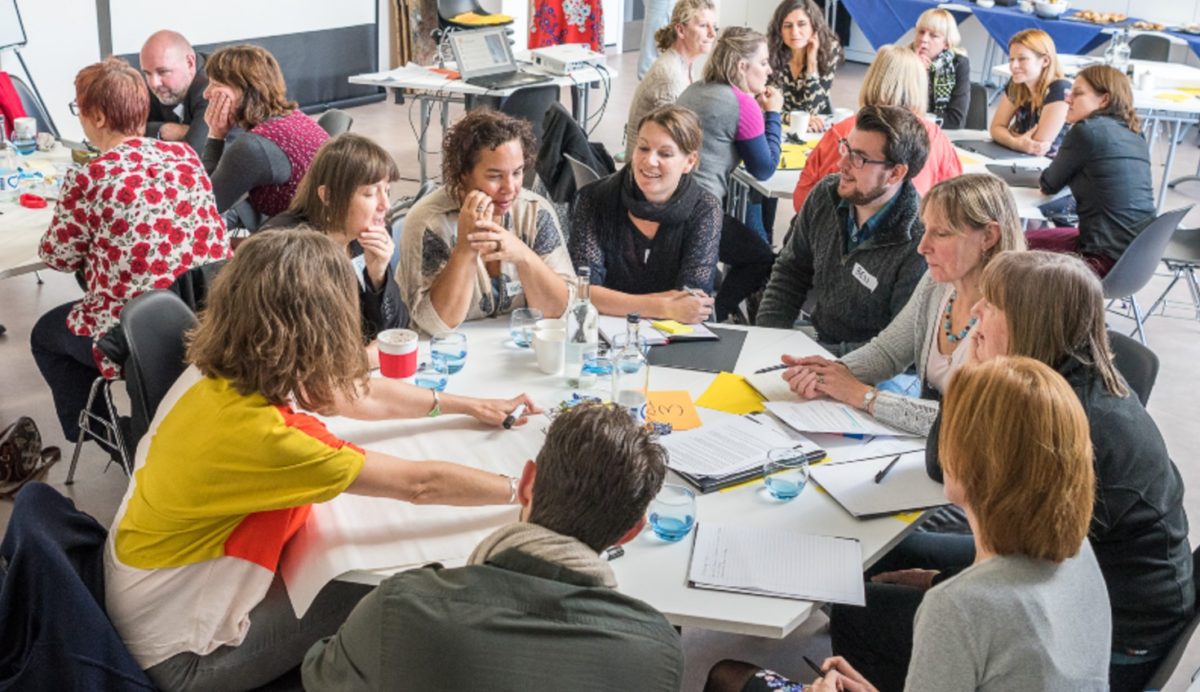Even though the results from the Research Excellence Framework (REF) 2021 are only just out, after an event I recently attended, I’ve been thinking about the next one, and how there needs to be less use of the term ‘Public Engagement’ in the impact case studies. In fact, I want to see none.
Ok, so let me explain.
Public Engagement in the REF 2021
The event, hosted by the Royal Society and the National Co-ordinating Centre for Public Engagement, was looking at Public Engagement in the REF 2021. The session was attended by a range of senior people in academia, funders, and learned societies. It was also great to see a good representation of Public Engagement Professionals in the room.
There was a prevalence throughout the day in the plenary and small group sessions to hear the use of the catch-all term of ‘Public Engagement’ - not surprising, it was an event about public engagement!
But, as readers of this blog will know, ‘Public Engagement’ isn’t a singular thing: it works through a diverse set of activities, it has (too) many agendas to speak to, it involves many (not one singular) publics, and has many potential outcomes.
A problematic umbrella term
The use of this umbrella term, I think, is now causing problems. Each time anyone reads, hears, or uses it, they have to interpret what it means for themselves by understanding the context it is being used in.
If you say “I did some public engagement” you’re potentially doing a disservice to your work, it says nothing at all about what you actually did, who was involved, or why you were doing it.
Did you work with a museum curator who used your research in an exhibition? Did you have some meetings with someone? Did you create an interactive display in a pop-up shop? Did you create a physical theatre performance? Were you interviewed for a documentary or a news programme?
In the discussions we had at the event, it was clear that the lack of precision about what was actually done and why, had a significant impact on how well the public engagement was described, understood and, importantly for the REF, assessed.
When talking with people about why public engagement is important, I often place public engagement alongside the other broad “pathways to impact” of policy, industry, and media. We will find teams of people in universities who are responsible for these areas and may well have parallel terms like Policy Engagement in their job/team titles.
But if you search through the bank of Impact Case Studies you won’t find case studies stating that the academics did “policy engagement” or “industry engagement”. You’ll find precise language of the activity that took place, going on placements, contributing to an All-Party Parliamentary Groups, using Knowledge Transfer Partnerships or undertaking Collaborative Research. Yet, we can find many impact case studies that use the term ‘Public Engagement’ (or similarly vague terms like ‘Community Engagement').
Is it really a validation of our work?
In fact, about half of the Impact Case Studies in both REF2014 and REF2021 featured the term ‘Public Engagement’. Some might have been hoping for an increase. I can see why. Many of us have spent years advocating for public engagement with research and an increase in public engagement in the REF could be seen as a validation of our work.
However, I’m not so sure.
Our language reflects our thinking and our understanding, does the continued use of this broad term demonstrate a sector that hasn’t interrogated the practice(s) of public engagement robustly enough to develop a common language that accurately describes the range and complexity of activity that is currently delivered under this umbrella term?
Down with ‘Public Engagement’ (the term, not the practice)
With this in mind, I have come away with a desire to see a significant drop (maybe to zero) in the number of times we see the phrase ‘Public Engagement’ in the Impact Case Studies for REF2028.
It’s not that public engagement isn’t important. It’s vital if we are to deliver our ambitions to “forge much deeper connections with wider society” [UKRI PE Strategy].
But we should be able to do better in how we describe our work. Being clear about who we are engaging, why, what interventions were delivered, and demonstrating the value of that engagement is essential. Continuing to use the umbrella term ‘Public Engagement’, rather than being precise about what has been done, obscures some amazing work (and can also elevate poor practice).
Personally, I will be encouraging my colleagues to stop using the term ‘Public Engagement’ in their planning for the next REF.
Helen Featherstone is Head of Public Engagement at the University of Bath




I really agree. We, at Vocal, work across many different areas: public engagement, patient involvement, co-production, community partnership, etc etc. A few years ago, we decided to drop the jargon. We try to avoid using these words. Instead, we talk about what we're trying to achieve through dialogue, and then how we set to achieve it.
Great piece Helen. For REF2021 our unit did not use the term for exactly your reasons above: 'public engagement' can be an imprecise term, or at least perceived that way.
I think that you point to a maturing discipline and series of methodologies. This is exciting, and I hope that we can all feel comfortable knowing that while we might not use that language, we certainly are supporting and promoting similar kinds of work. Let's brand things as 'public engagement' when it is helpful to do so, and be brave enough to let it slip (temporarily perhaps!) into the background when necessary.